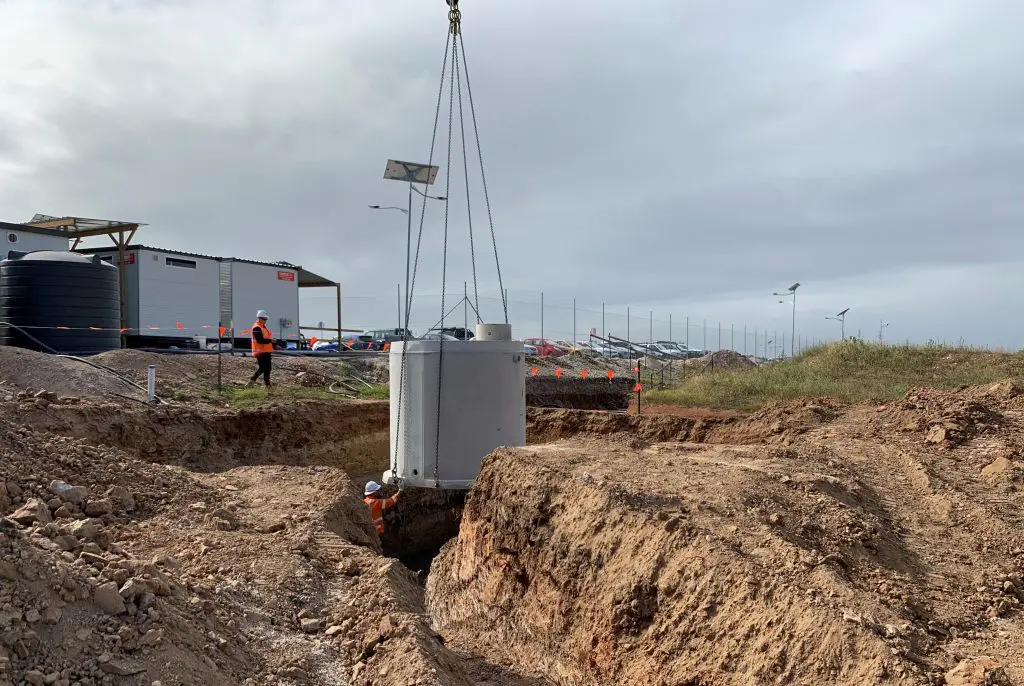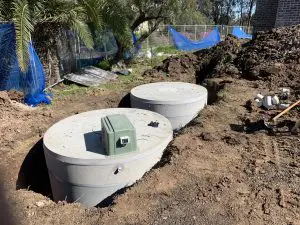Beyond the Tank: Unleashing the Potential of Treated Septic Water in Australia
In the ever-evolving landscape of wastewater management, a revolution is underway in Australian homes. Aerated Wastewater Treatment Systems (AWTS) are at the forefront, heralding a new era of innovation and sustainability. In this exploration, we’ll dive into the cutting-edge advancements in AWTS technology, emphasizing the benefits for Australian homeowners and the role of AWTS businesses in shaping the future of sustainable wastewater management. Join us on a journey towards a greener and more efficient tomorrow, right from the heart of regional Australia.
The Evolution of AWTS Technology: A Glimpse into the Future
AWTS systems represent a paradigm shift in how we approach wastewater treatment. Unlike traditional septic systems, these cutting-edge solutions leverage advanced technology to treat and recycle wastewater on-site. The future of AWTS technology is bright, with ongoing advancements contributing to increased efficiency, environmental sustainability, and user-friendly operations.
Key Advancements:
Smart Monitoring Systems:
The integration of smart monitoring systems allows homeowners to have real-time insights into the performance of their AWTS. From monitoring water levels to tracking treatment processes, these systems empower users to make informed decisions about their wastewater management.

Energy-Efficient Designs:
Modern AWTS systems prioritize energy efficiency, utilizing innovative designs to minimize power consumption. This not only reduces the environmental footprint but also translates into cost savings for homeowners.
Compact Footprint:
Advances in design have led to more compact AWTS systems, making them suitable for a variety of land sizes. This is particularly beneficial for regional homeowners with smaller lots or those seeking unobtrusive solutions.
Benefits for Australian Homeowners: A Sustainable Living Experience
Australian homeowners, especially those in regional areas, stand to gain significantly from the adoption of AWTS systems. Let’s delve into the tangible benefits that revolutionize waste management and contribute to a sustainable living experience:
Efficient Wastewater Treatment:
AWTS systems excel in treating wastewater efficiently, ensuring that the treated water meets high environmental standards. This, in turn, contributes to the preservation of local ecosystems and water resources.
Water Recycling for Irrigation:
Treated water from AWTS systems can be repurposed for irrigation, offering a sustainable solution for regional homeowners looking to maintain gardens or cultivate small agricultural plots.
Reduced Environmental Impact:
The advanced treatment processes in AWTS systems result in a reduced environmental impact compared to traditional septic systems. This aligns with the values of homeowners who prioritize sustainable living.
Cost Savings Over Time:
While the initial investment in an AWTS system may seem higher, the long-term cost savings are notable. Energy-efficient designs and reduced maintenance requirements contribute to financial benefits for homeowners in the region.
Flexible Installation Options:
AWTS systems come in a range of sizes and designs, offering flexibility in installation. This adaptability is particularly advantageous for regional homeowners with diverse land configurations.
The Role of AWTS Businesses: Shaping a Sustainable Future
As AWTS technology advances, businesses in the sector play a crucial role in shaping the future of sustainable wastewater management. These businesses, often rooted in regional communities, contribute to environmental stewardship and community well-being.
Local Expertise and Service:
Regional AWTS businesses provide local expertise, understanding the unique challenges and opportunities presented by the environment. This ensures that homeowners receive tailored solutions that suit regional conditions.
Community Education Programs:
AWTS businesses actively engage in community education programs, empowering homeowners with knowledge about the benefits of AWTS systems and sustainable wastewater management practices.
Innovation and Research Initiatives:
To stay at the forefront of the industry, AWTS businesses invest in innovation and research. This commitment to advancing technology ensures that homeowners have access to the latest and most efficient wastewater treatment solutions.
Case Study: Sustainable Living in Regional South Australia
In a regional South Australian town, an AWTS business implemented a community-focused initiative. By providing education on sustainable living and offering discounted installations for AWTS systems, the business not only contributed to environmental conservation but also strengthened community ties.
Looking Ahead: A Greener Tomorrow
As we embrace the future of AWTS systems in Australian homes, it’s clear that these innovative solutions hold the key to a greener tomorrow. With benefits ranging from efficient wastewater treatment to cost savings and reduced environmental impact, AWTS technology is revolutionizing the way we manage waste in regional Australia.
For the average homeowner in regional Australia, the adoption of AWTS systems not only aligns with a commitment to sustainability but also contributes to the preservation of the unique landscapes that define our regional communities. As businesses continue to drive innovation and homeowners make informed choices, the journey towards sustainable living through AWTS technology becomes a shared endeavor, shaping a future where waste is not just managed but transformed into a valuable resource for generations to come.
For a Free Quote and Sizing on all Septic Tanks Made in Australia call the team at Eco-Septic on 1800 808 135
Related Posts
- Common AWTS Problems in Victoria and How to Solve Them
- What is a AWTS?
- How To Make Sure You Have The Right Septic Tank For Your Home
- How Can We Reduce Wastewater At Home?
- How to maintain a septic tank
- How Much Sewage Is Produced Per Person?
- What is Grey Wastewater?
- If Your House Has A Septic Tank, Do You Have To Pay A Sewer Bill?




